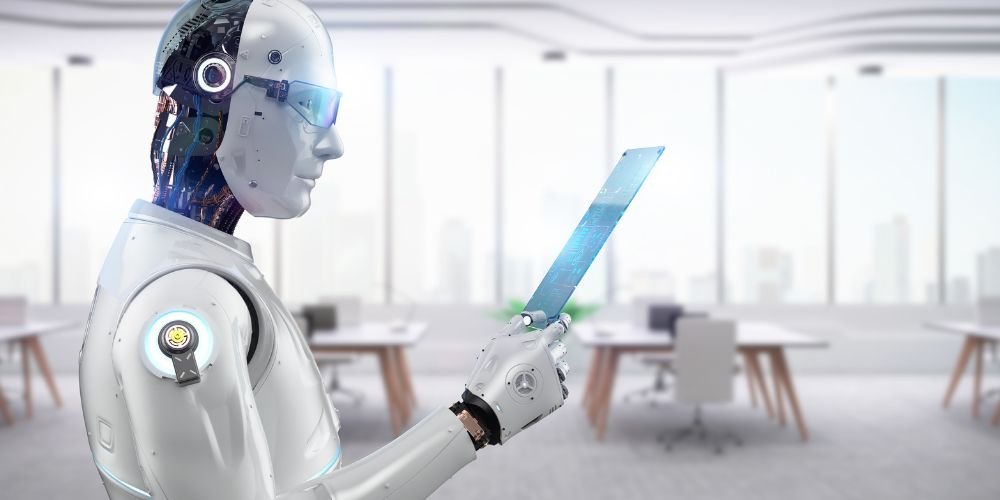Robotics has emerged as a transformative force in the healthcare sector, revolutionizing patient care, surgery, diagnostics, and even pharmaceutical research. This insightful analysis delves into the significance of robotics in healthcare, its impact on the industry, its challenges, and its potential to reshape the future of medical practices.
Significance of Robotics in Healthcare
Robotics in healthcare refers to using robotic systems and technologies to enhance medical procedures, patient care, and research. Its significance is rooted in several key aspects:
- Precision and Accuracy: Robots offer unparalleled precision and accuracy, reducing human error and improving the success rates of surgical procedures and medical interventions.
- Minimally Invasive Surgery: Robotics allows for minimally invasive surgeries, resulting in smaller incisions, reduced pain, shorter hospital stays, and faster patient recoveries.
- Telemedicine and Remote Surgery: Robotics enable telemedicine applications, allowing doctors to perform surgeries remotely and extending medical expertise to underserved areas.
- Repetitive Tasks: Robots excel at repetitive and labor-intensive tasks, such as drug dispensing, physical therapy, and patient monitoring, freeing healthcare professionals for more complex tasks.
Impact on Healthcare
Robotics in healthcare has had a profound impact on the industry:
- Surgical Advancements: Robot-assisted surgery, such as the da Vinci Surgical System, has transformed the field by enabling complex procedures with enhanced precision and reduced invasiveness.
- Rehabilitation: Robotics-assisted physical therapy and rehabilitation devices are helping patients regain mobility and recover from injuries or surgeries more effectively.
- Diagnostics: Robotics and AI are enhancing diagnostic capabilities, with robots capable of performing high-throughput testing and analyzing medical images with great accuracy.
- Elderly Care: Robots are being developed to assist in elderly care, helping with daily tasks, monitoring vital signs, and providing companionship.
- Drug Discovery: Robotic systems are used in pharmaceutical research to automate high-throughput screening of potential drug compounds, accelerating drug discovery processes.
Challenges in Robotics in Healthcare
Despite its potential, robotics in healthcare faces several challenges:
- High Costs: The initial investment in robotic systems can be prohibitively expensive for healthcare facilities, limiting their adoption.
- Regulatory Hurdles: Regulatory approval and certification for medical robots can be lengthy and complex, delaying implementation.
- Training and Integration: Healthcare professionals require specialized training to effectively operate and integrate robotic systems into their practice.
- Ethical Concerns: Using robots in sensitive healthcare tasks raises ethical concerns about patient privacy, trust, and the potential for automation to replace human jobs.
- Data Security: The collection and storage of sensitive patient data by robotic systems require robust cybersecurity measures to protect patient confidentiality.
The Future of Robotics in Healthcare
The future of robotics in healthcare is promising and evolving:
- AI Integration: Increased integration of artificial intelligence and machine learning will enhance the capabilities of medical robots, enabling them to adapt to diverse patient needs and scenarios.
- Remote Monitoring: Robotics will continue to play a vital role in remote patient monitoring, providing real-time data to healthcare providers for timely interventions.
- Miniaturization: Smaller, more versatile robotic devices will allow greater precision in minimally invasive procedures.
- Telehealth and Telemedicine: Robots will facilitate expanding telehealth and telemedicine services, bridging geographical gaps in healthcare access.
- Interdisciplinary Collaboration: Collaboration between robotics engineers, healthcare professionals, and ethicists will drive responsible and ethical development and implementation of medical robots.
Conclusion
Robotics in healthcare is reshaping the way medical procedures are conducted, patient care is delivered, and pharmaceutical research is undertaken. Its significance lies in the potential to improve healthcare outcomes, enhance patient experiences, and address the challenges faced by the industry. As robotics technology advances, overcoming challenges related to cost, regulation, and ethical concerns will be crucial to realizing its full potential in the healthcare sector.




